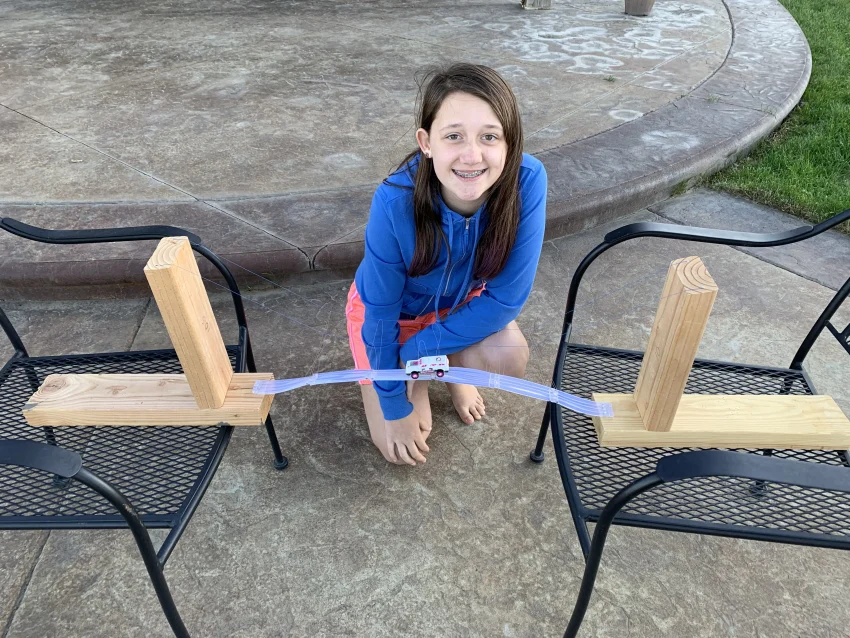Not long ago, R&D departments fought tooth and nail for resources to explore new tech. On-premise solutions were expensive and decisions focused on avoiding failure at all costs—kind of like bringing a calculator to Vegas to make sure you don’t lose at blackjack.
In the last decade, cloud platforms have revolutionized innovation. Companies of all sizes can now build, test, and scale solutions cheaply. Technology isn’t just a necessary expense anymore—it’s your secret weapon for standing out from competitors who are still using fax machines and rolodexes.
FYI: the picture above is Morgan’s POC for a bridge she made in 6th grade. It failed miserably and gave her a black toe and she lost a toe nail due to trying to put weight on it. It’s okay for POCs to fail, you learn and make something better after that. But not Morgan, she just quit and moved on.
Tiny Investments, Massive Returns
With just a sliver of your budget dedicated to R&D, you can leverage cloud services to experiment with POCs that might deliver huge payoffs. For large companies, this means abandoning the “failure is not an option” mindset and embracing an approach where failure is more like that awkward date you had—uncomfortable but ultimately educational.
Enterprises should take notes from startups, who dive into cloud solutions like kids into a ball pit. Startups use pay-as-you-go services to validate markets and collect feedback without breaking the bank. They view failure as a learning opportunity, not career suicide.
Enterprise companies often struggle with this agile mindset at first. They assume their reputation alone guarantees success—like expecting people to love your cooking just because you own an expensive apron. However, this changes after they see the value of testing assumptions before committing resources.
POC vs MVP: The Difference
A Proof of Concept is phase one of app design, letting you quickly address business challenges to:
- Evaluate tradeoffs
- Measure costs
- Test functionality
- Collect feedback
- Determine market acceptance
POCs are time-boxed with clear KPIs, keeping costs lower than your coffee budget and providing quick insights. They’re tested with a small user group— it’s like asking your mom if she likes your dress before showing up at prom.
For example, one of my retail clients dedicated $4k/month to R&D. After identifying key business problems, we developed multiple POCs before finding the right solution. They tested it at one store location, made changes based on feedback, and only then scaled to an MVP across multiple states. Within 18 months, they saw significant returns—no crystal ball required.
An MVP transforms your proven concept into a basic product for wider testing. It requires greater investment but helps you:
- Speed up market entry
- Build user loyalty
- Prove market demand
- Gather broader feedback
Whether you’re a startup or enterprise, POCs ensure you deliver products that customers actually want, not just products you think are cool—like that exercise equipment gathering dust in your garage. Need help transitioning from massive MVPs to bite-sized POCs? Let’s chat!
